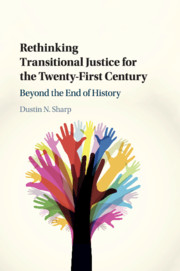Preface
Published online by Cambridge University Press: 23 February 2018
Summary
- Type
- Chapter
- Information
- Rethinking Transitional Justice for the Twenty-First CenturyBeyond the End of History, pp. vii - xviPublisher: Cambridge University PressPrint publication year: 2018



